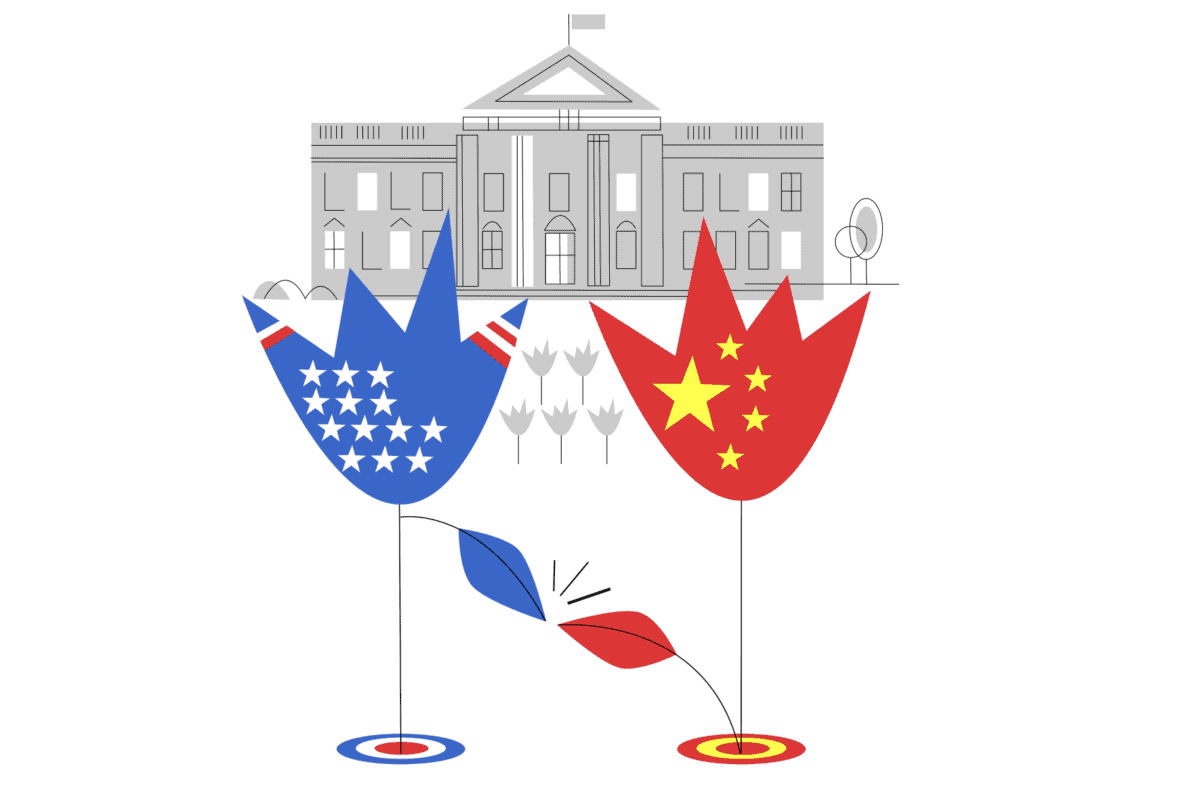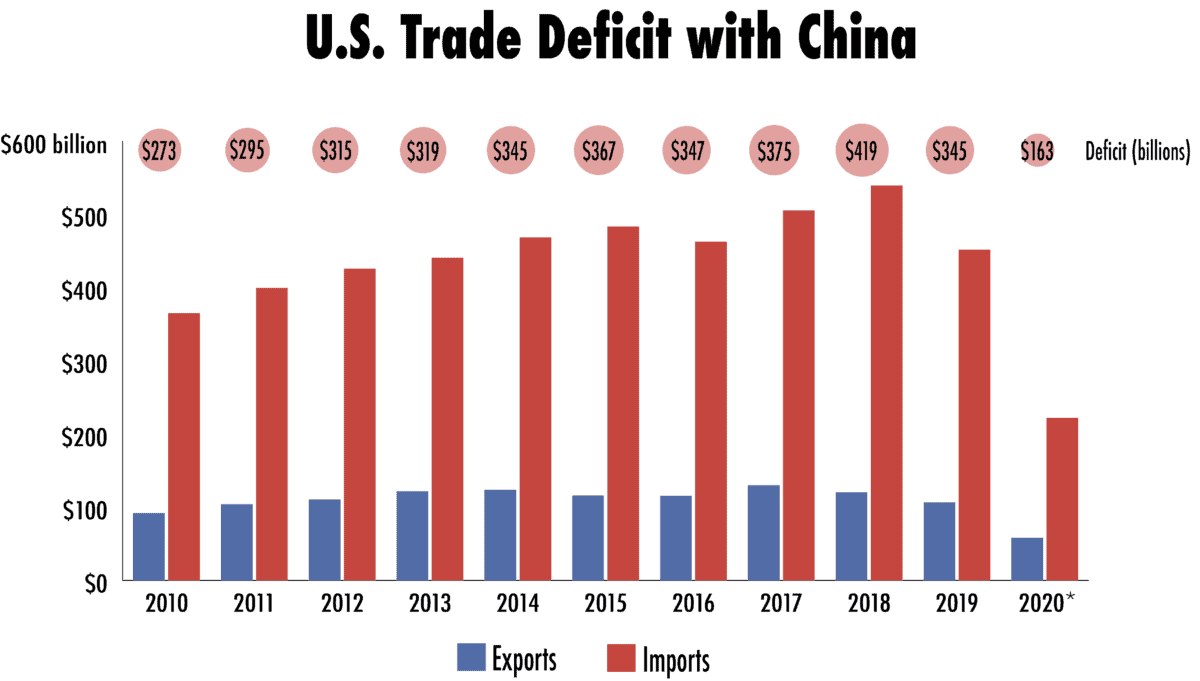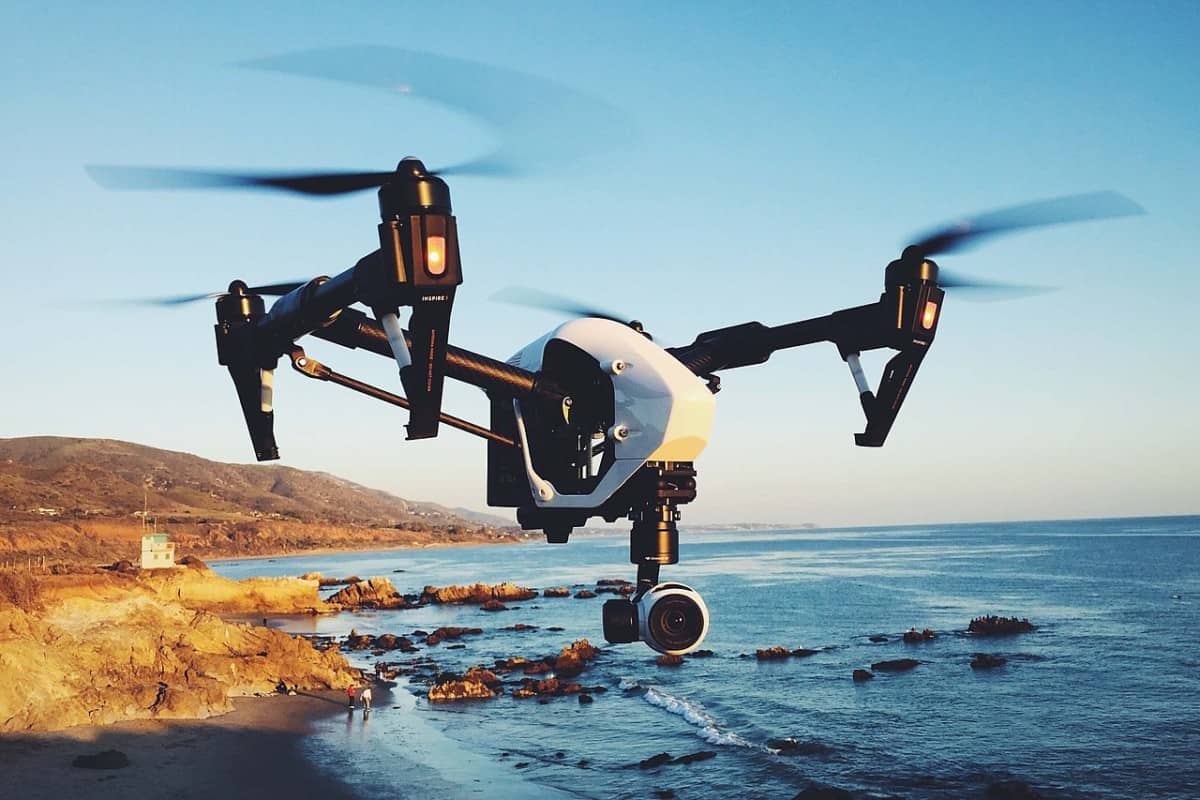Good evening. 2020 has been called a lot of things — chiefly, a dumpster fire — but between Covid-19 and the U.S. presidential election, the year will also serve as an important turning point in the history books. This week’s issue looks at different angles of this critical moment, including what U.S. economic policy could look like with the next administration, where all the debate over “national security threats” is taking the U.S. government, and how businesses like IMAX are planning on reinventing themselves for post-pandemic life. If you’re not already a paid subscriber to The Wire, please sign up here.
Want this emailed directly to your inbox? Sign up to receive our free newsletter.

China Memos for the Next President
The U.S. presidential election is just one month away, and this year, more than ever before, the question of how the U.S. should deal with China is on the ballot. In this week’s issue, The Wire is looking at the three most pressing areas in the U.S.-China economic relationship — trade, technology, and investment — and asking subject matter experts what their advice would be for the next president, whoever it may be. We talked to leading policy makers, cyber security experts, senators, economists, and investors about how to strengthen the American economy, retool the country’s trade policy, and spur technological innovation.

Data: U.S. Census Bureau
The Big Picture: The U.S.-China Trade Relationship
This week, as part of The Wire’s election issue, our data graphics examine different aspects of the trade relationship between China and the U.S., and how they have evolved during the past four years. We gathered data on the growing U.S. trade deficit with China, how individual states’ exports have fared under the Trump administration, the top products that the U.S. and China sell to one another, and some of China’s biggest exporting companies.

Credit: Elmekkaoui abdelghani, Creative Commons
Are Chinese Drones a National Security Threat or Required for the National Interest?
The U.S. government can’t seem to decide. Drones made by DJI, a Chinese company, are ubiquitous in the U.S. government, used by everyone from the military to the Interior Department to hundreds of local law enforcement agencies. But as The Wire‘s Eli Binder reports, even though parts of the national security establishment have worked to block DJI drones, citing potential security threats, other federal agencies have continued to embrace DJI drones and order more, arguing that their operations depended on them. The contrast reveals just how inconsistent and uncoordinated implementation of the U.S. government’s China policy has been, and how a “national security threat” can, at times, be in the eye of the beholder.
A Q&A With Rich Gelfond

Rich Gelfond has run the IMAX Corporation since 1996. Today, the company is listed on the New York Stock Exchange, and its affiliate, IMAX China, is listed in Hong Kong. In this week’s interview with The Wire’s David Barboza, he talks about the company’s entrance into China, box office records, and how the company is now coping better inside China than in the United States.
Rich Gelfond
Illustration by Kate Copeland

Credit: Connie Zhou, Creative Commons
China’s Semiconductor Future: What Can $1.4 Trillion Buy?
The Chinese government has committed $1.4 trillion to develop its domestic semiconductor industry in the next five years. This attempt to achieve self-reliance in semiconductors, which power much of the global economy, is not just a strategic objective but an existential imperative as multiple rounds of U.S. sanctions threaten to cripple China’s tech sector. But while China’s investment should be taken seriously, The Wire columnist Kevin Xu argues, it should perhaps not be taken literally, if only because its literal value is less than meets the eye.
Subscribe today for unlimited access, starting at only $19 a month.



